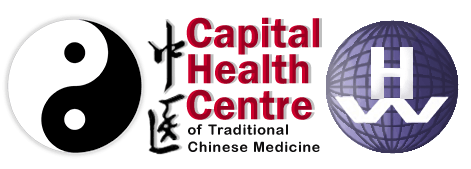How Posture is Important in Acupuncture
In the treatment of acupuncture, posture and movements are beneficial for the healing process, when used collaboratively. In a healing environment, this combination is very important for clients in different age groups, and with health conditions, as these techniques can make clients more comfortable and ready for the healing benefits of acupuncture.
Clients in Traditional Chinese Medicine (TCM) are recommended to adopt specific breathing techniques, postures, and healing mindsets when receiving acupuncture, acupressure, moxibustion, cupping etc. This is because these techniques can work on influencing the meridian energy flow, improving the effectiveness of specific treatments.
When you are receiving acupuncture, different postures will be suggested by your practitioner depending on which meridians need to be focused on for the treatment, and what health conditions or considerations need to be made. For example, when a client is having a very stressful day mentally and emotionally, they have often gained a lot of tension in the front and face partition due to experiencing a lot of conflict, or stress front on. This can influence where the acupuncture is focused on in the appointment. In the work context, people hold a lot of tension in the front of the body such as in their face, chest, abdomen, and top of feet. Tension in the face can result in headaches, jaw tightness, sleeping and snoring issues. Therefore any issues in the front of the body and face require a ‘face-up’ position or posture for acupuncture.
In TCM, it is believed that the back is young and has a young meridian, which keeps people stronger and recharged. The young meridians and the functioning of the qi in these places can be targeted with acupuncture to help relieve pain, and to energise and revitalise clients. For this effective treatment, the face down, or ‘back-up’ position is implemented. Thus, a focus on posture in TCM can result in different results for specific concerns.

The sides of the body and their importance can be demonstrated through the analogy of two-way-traffic. Either side of your body is a different way that traffic is flowing, which regulates the flow of energy to the different exits, or sides of the body. This occurs to distribute qi evenly in the body, as when you lie on one side, the energy is able to flow to the other side through the use of gravity. Lying on your side is beneficial for ensuring that the left side of your body communicates energy to the right, and vice versa.
We spend the majority of our lives standing or with our heads up. This is not only an alert and aware posture, but lying on your side can be used to offset the repetitiveness of this posture, and restore balance as the sides are able to communicate to each other.
Good posture can make the front and back equally distributed in energy, and aligned with gravity. When the qi is evenly distributed to the sides, the front and back aren’t necessarily being balanced as well. The front and back of the body is about the flow of energy from the top to bottom, bottom to top, front to back, and back to front. Thus, the positions or postures in your daily life, and thus when you receive acupuncture, are important for how the energy travels throughout the body, which has benefits for your overall health and body balance.
While in the lateral postures of healing, breathing often tends to be secure, smooth, and comfortable. Therefore, the posture of lying on your sides can be recommended to clients to improve their breathing throughout the treatment, and additionally, throughout their daily lives. Although, different postures may also be suggested to clients for their unique health concerns.
Acupuncturists may also suggest specific postures that can support you, depending on your condition. For example, pregnant women may be given unique positions/postures to benefit them in their healing and to help release tension in muscles. This is because the baby’s size, weight, and the way it is being carried can have an impact on the body, and these concerns can be cared for specifically. For this condition, cushions, heat packs and towels can be used or situated in certain positions to make the client feel more comfortable before treatment can be carried out.
Clients that are in the rehabilitation stage of a service or sports injury, and aged clients, can also benefit from additional things such as cushions, and from changes to posture to ensure that the client gets into the appropriate position for the meridians to be aligned, which effectively balances the flow of energy in the body, optimising the treatment outcome and healing progress.
Therefore, postures are extremely important in TCM and in acupuncture as they can assist acupuncturists in knowing which meridians to focus on, making the healing treatment more individualised.




